Around 80 000 rounds of ammo and explosives still around Primorskoye village in Abkhazia
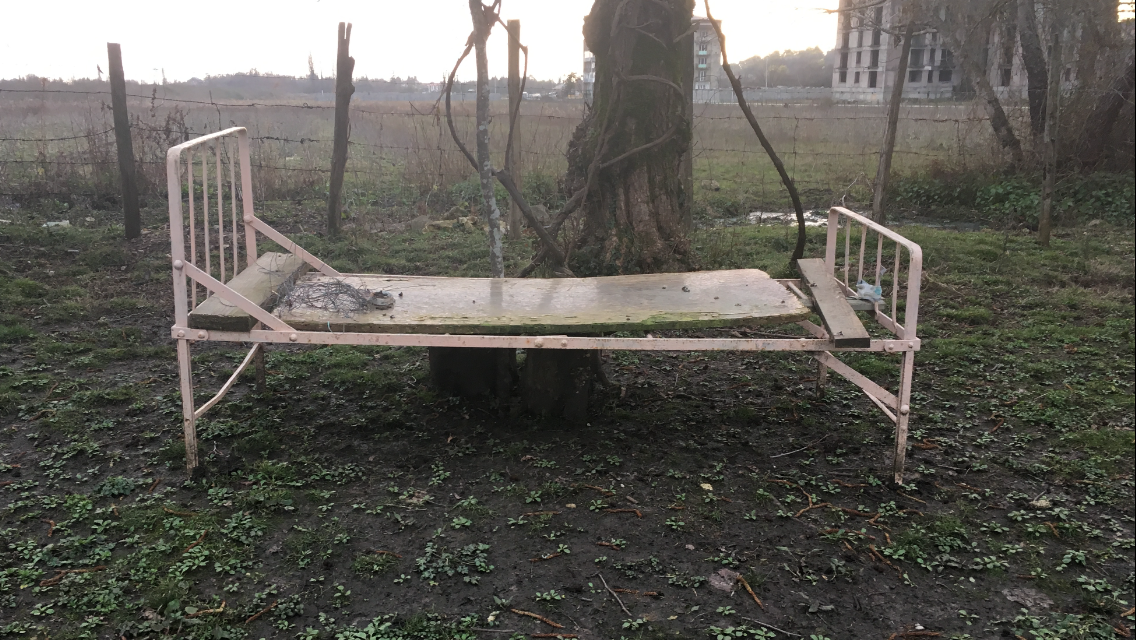
“We never liked the fact that the munitions depot was located in the village. I was always kind of expecting or waiting for it explode,” says Meri, a resident of Primorskoe village.
A munitions warehouse exploded eight months ago in August 2017. Three people lost their lives and 64 were wounded. Twelve homes were completely destroyed and 122 were seriously damaged.
Meri was not injured nor was her apartment damaged during the explosion. She had returned home several moments before the explosion and, while putting her key in the lock, was thrown back by the blast wave, though not very hard. The apartment was spared because its windows were wide open, and the wave passed through them ‘like a draft’.
Meri says that, despite the nightmare from a few months ago, nobody is afraid now. On New Year’s they launched fireworks as they always have, and life in the village has normalized. However, around the village things are a little bit different.
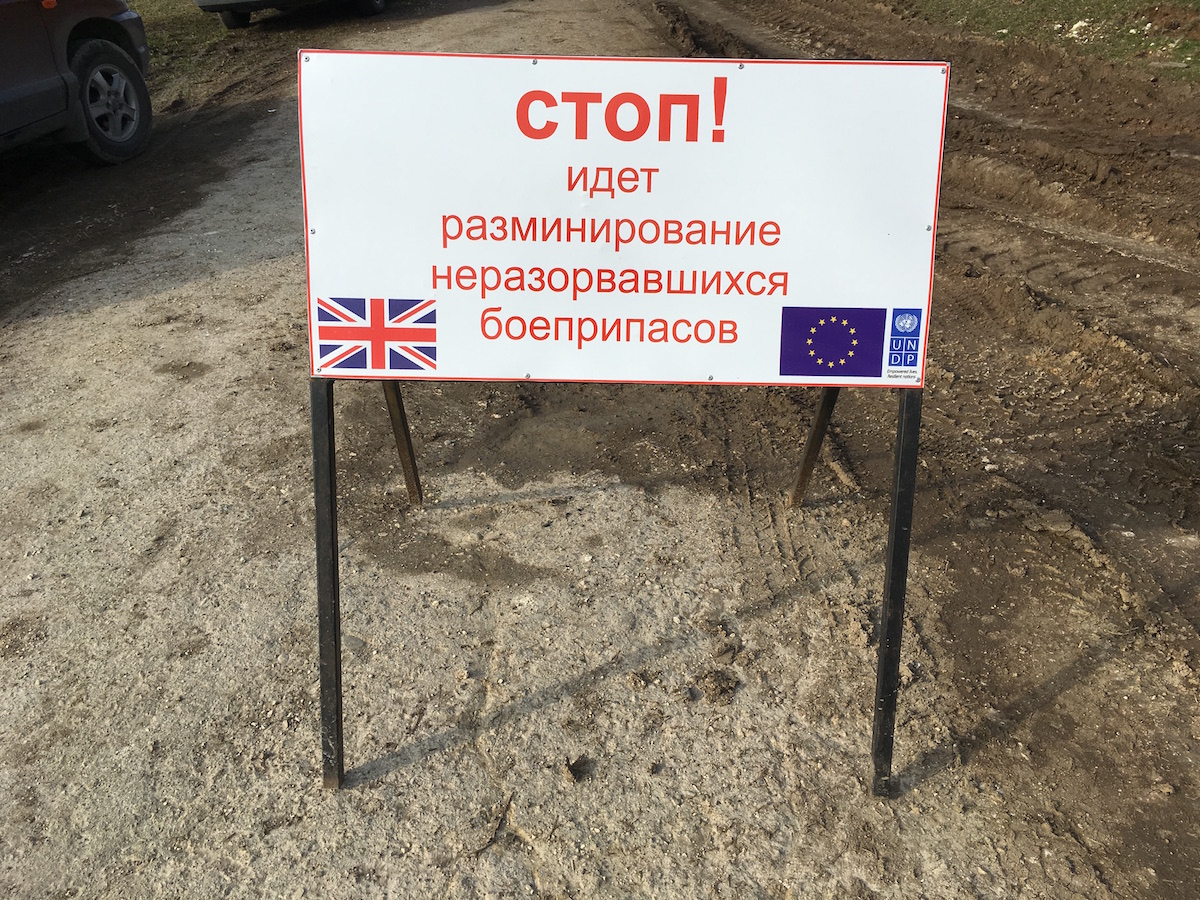
Cows graze half a kilometer away from the spot of the explosion. The sound of their bells can be heard from anywhere in the village, along with the sounds of dogs barking, crows cawing, roosters crowing and birds singing.
There is a view of the sea from where the munitions warehouse used to be. If one could stand and look only forward, and see nothing to the sides or behind, the sight of the sea – unspoiled by the remains of numerous bombs, explosives, the ruins of the warehouse and trees crumpled and burnt to the ground by the heat of the explosion – would be spectacular.
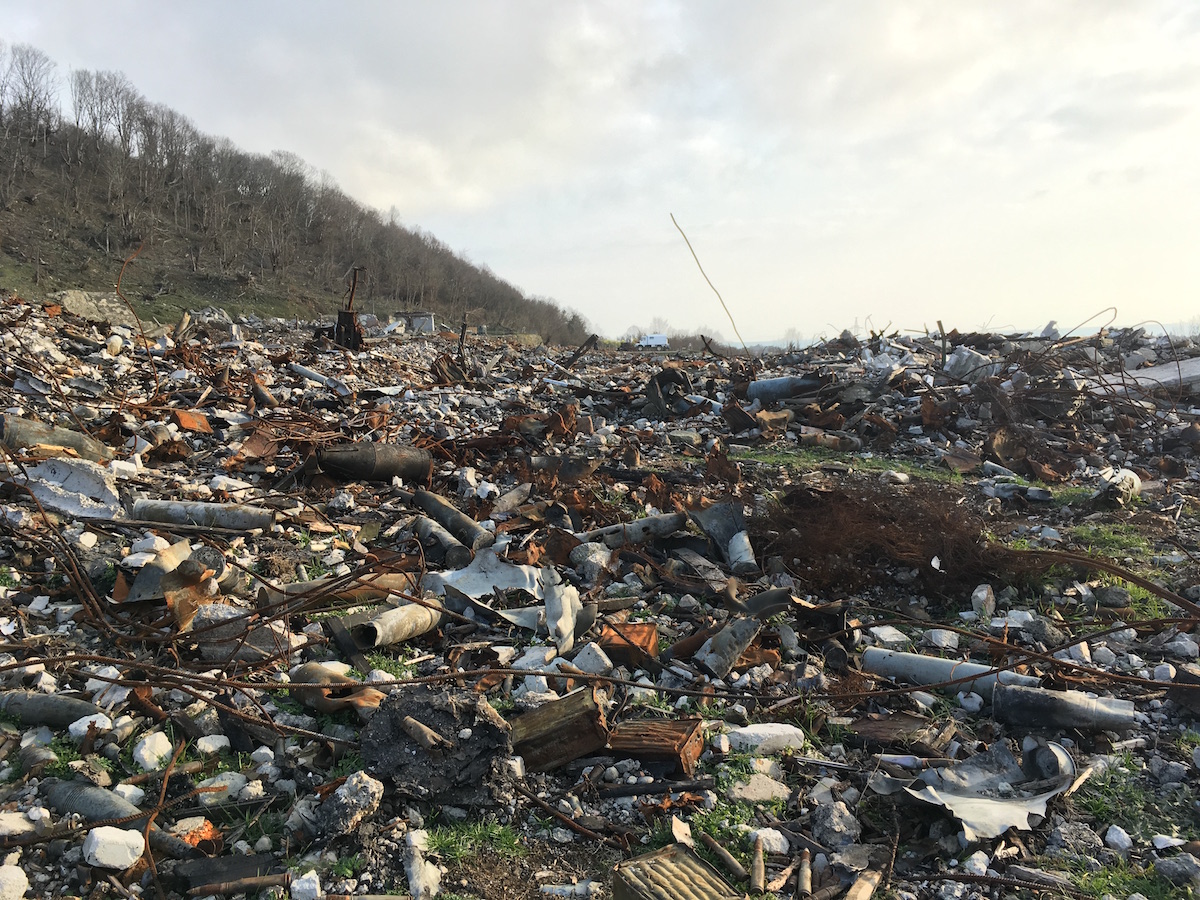
The main residents of this place are now employees of HALO Trust, an the international organisation which works to neutralise landmines and unexploded devices across the world. Since August 2017 up until February 2018, HALO Trust specialists have neutralized and destroyed more than 17 000 unexploded devices of varying strength over an area of a little more than a square kilometre.
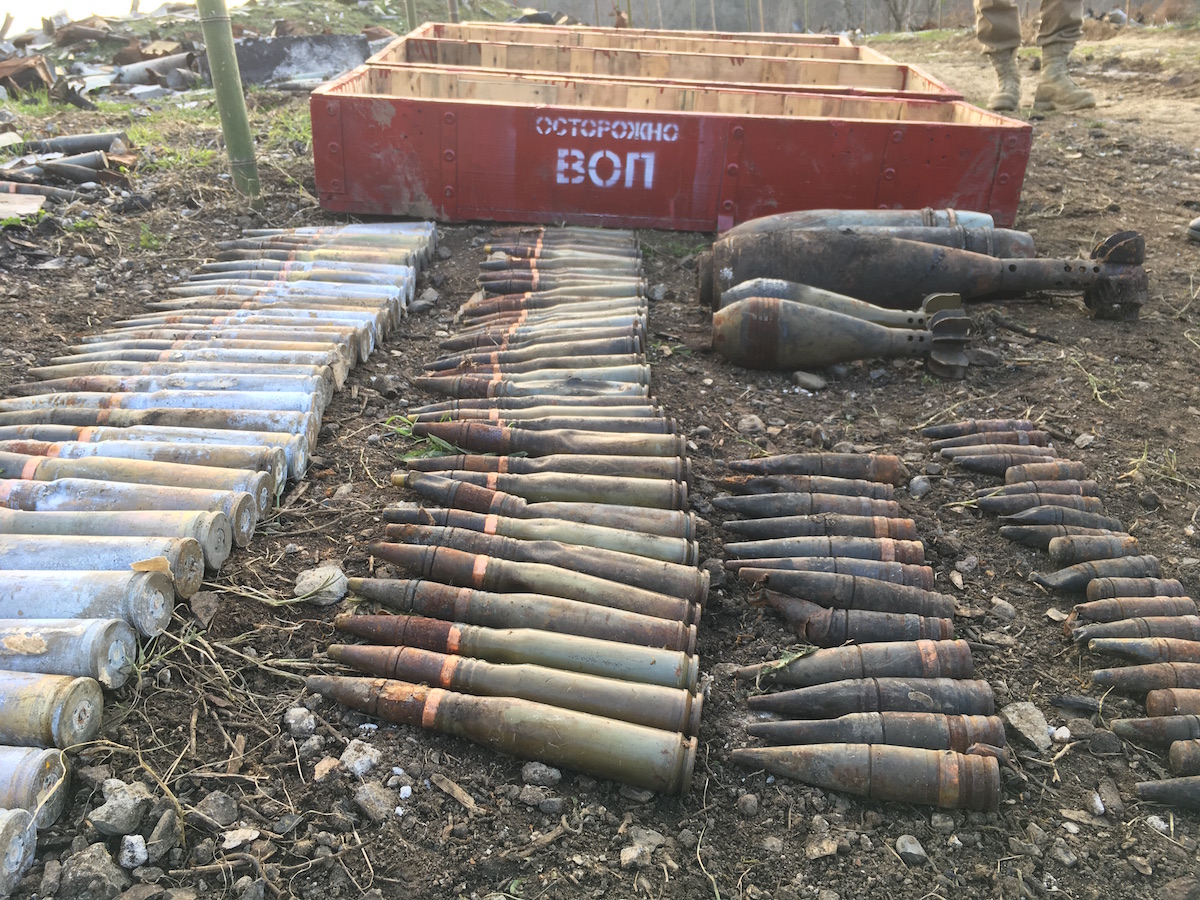
There is still a lot of work to be done however: an area of 4.5 square kilometres surrounding the epicenter of the blast remains dangerous and de-miners expect to find up to 80 000 more unexploded devices. What’s more, the process has gotten even slower than before, given that now only 10 de-miners work on the site as opposed to the previous 32.
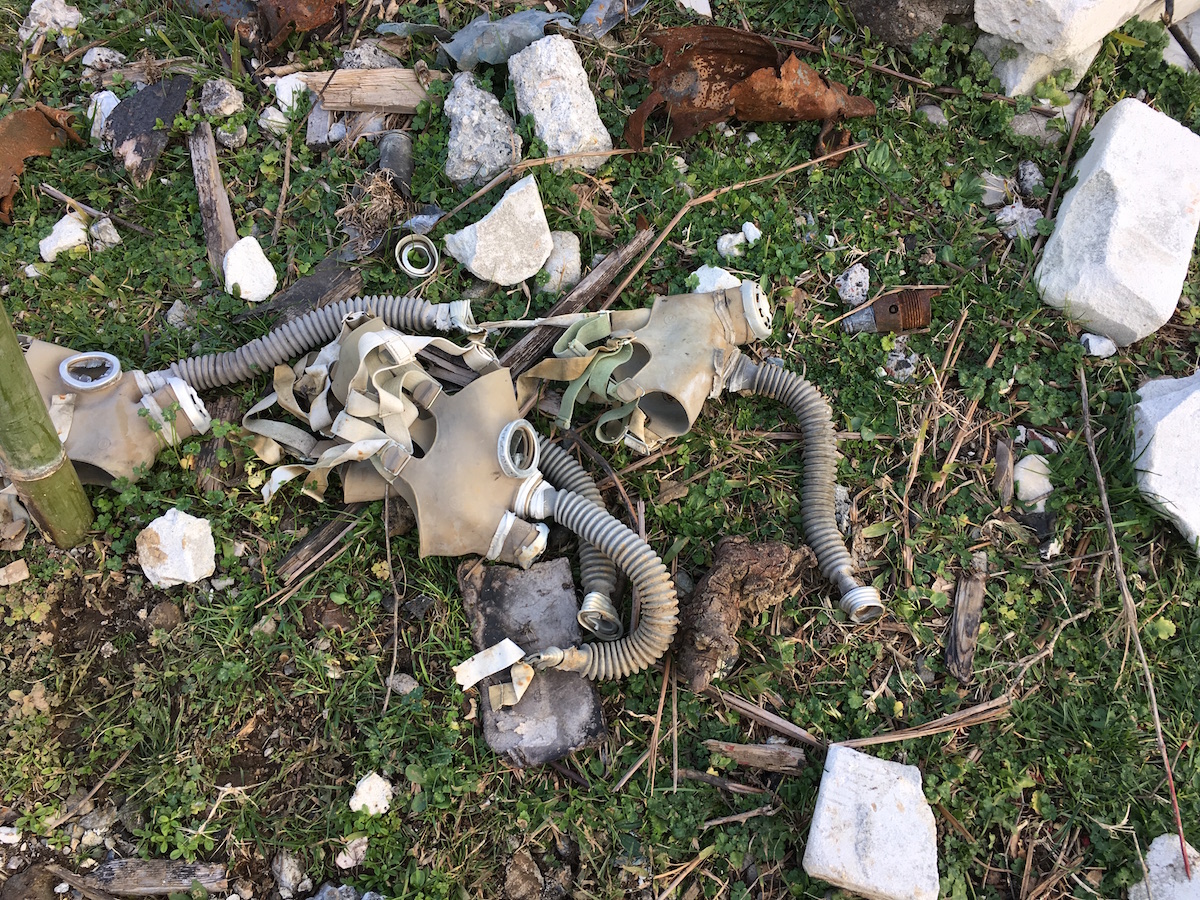
T
here’s nothing left of Jambul’s house. But he himself survived, which is surprising given that Jambul was at the warehouse during the blast, working as head of security.
“There were two explosions at first, like claps. I told the commission later that these could have been fuses, but they haven’t made any conclusions so far. I sent soldiers over there that were on guard at the warehouse, and I called the fire department. But when we heard the third ‘clap’, I understood that the fire department would already be of no use to us, and I ran to stop them. We were talking right next to the warehouse – and that’s when the explosion took place. I was thrown back by about 15 meters, the firemen too. The driver was blown out along with the door. We certainly took a hit, but we all remained alive,” Jambul recalled.
“Right there, where that hen is standing, is where my courtyard is, and there was a shell sticking out of the ground there – and there, and there! There are still holes.”
His children don’t live far away, but they too were spared grave injuries – only a few shells fell onto the roof of their home and some of their windows were blown out by the explosion. Jambul spend the autumn and winter living at their place. However, his home is being rebuilt, and Jambul says that it will be even better than the previous one.
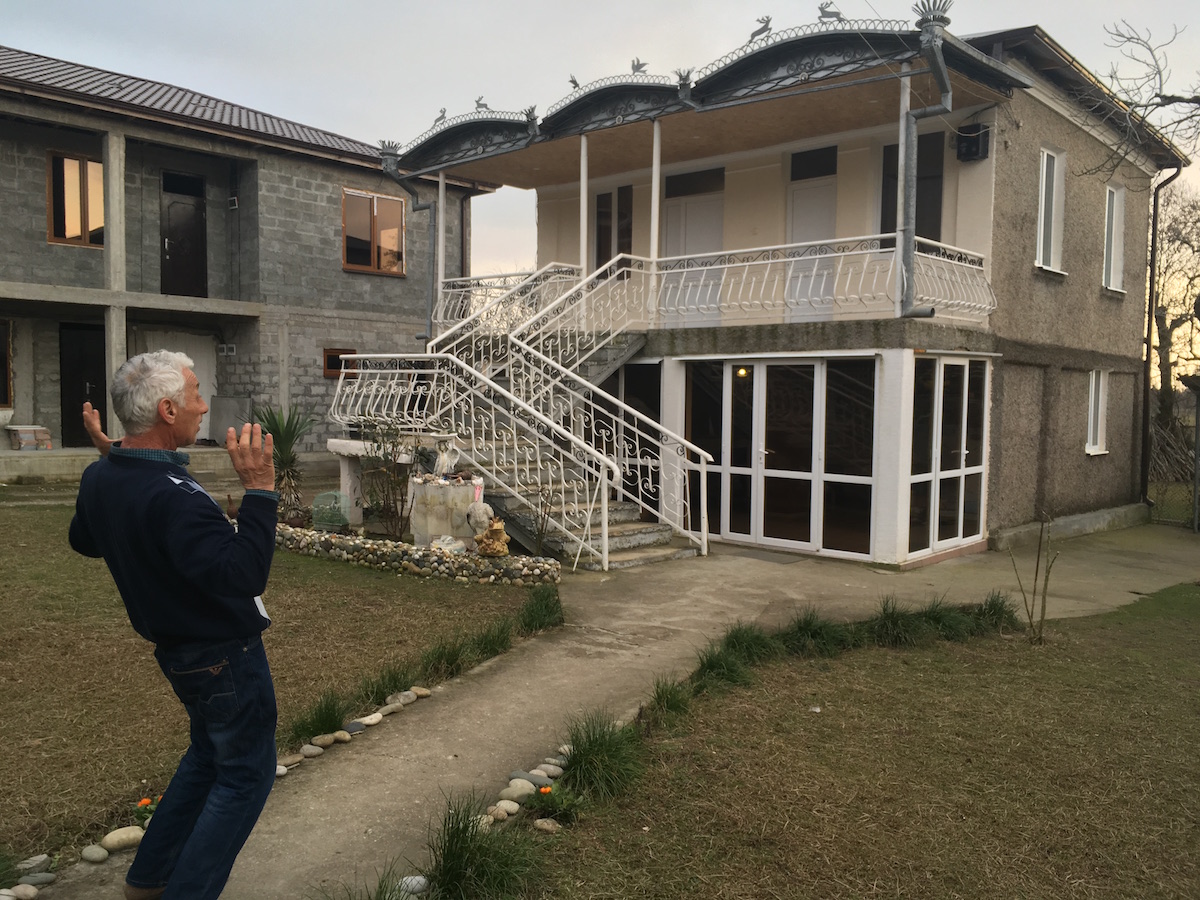
O
tar’s neighbour lost about 50 newly-born chicks during the blast. The house itself literally ‘popped’, he says. Otar was, at the time, outside and hid behind trees.
“We’ve had a drought in recent years, stink-bugs have destroyed everything and now these shells!” he says.
Construction on his new home is also coming to an end – only the floors need to be put in, the basement completed and the fence repaired. Otar and his elderly mother live with their neighbors for now. Otar hopes that by summer his home will be ready. He says that vacationers from Russia who used to come every year recently called him – they said they wanted to come this summer as well.



















